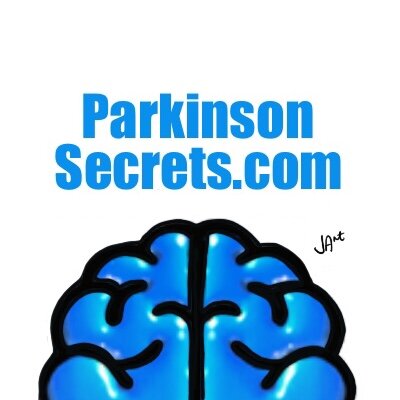Having trouble separating apathy and depression in Parkinson's disease?
Who is Nelson Hwynn?
Dr. Nelson Hwynn, DO, FAAN, is a movement disorders trained neurologist who practices in the Parkinson's and Movement Disorders Center at Scripps Clinic in San Diego, California. Dr. Hwynn was trained in Parkinson’s disease at the University of Florida.
Nelson Hwynn, neurologist at Scripps San Diego CA
Who is Joanne Hamilton?
Dr. Joanne Hamilton, PhD, is a fellowship trained neuropsychologist dedicated to helping the Parkinson's community also at Scripps Clinic in San Diego, California.
Joanne Hamilton PhD, Neuropsychologist at Scripps Clinic San Diego CA
What is apathy and can depression occur with
apathy?
Apathy is a common non-motor feature of Parkinson's, estimated to be present in up to 25% of individuals in early stages and increasing to as many as 60% of individuals in advanced stages. Apathy is characterized by reduced initiative, interest, and “emotionality.” Apathy shares characteristics with depression, a condition that is estimated to challenge ~25-50% of individuals with Parkinson’s. Both are syndromes that should be addressed with your medical professional. Here are some commonly asked questions about apathy and depression specifically in Parkinson’s.
There is a classic paper in the literature by Lindsy Kirsch-Darrow and Dawn Bowers at the University of Florida showing that apathy and depression can both exist independently or together.
Am I depressed because I have Parkinson’s Disease?
Or is there more to it?
Some people will have mood changes before they are diagnosed with Parkinson's disease. Others can have a lifetime of mild depression and have worsened depression just prior to their Parkinson’s symptoms become noticeable— and are diagnosed. While it is understandable that the diagnosis and pressures of living with Parkinson's may weigh on people, there is evidence that depression is not just a reaction to the challenges of Parkinson’s. The same neurotransmitters that impact movement in Parkinson’s also impacts mood and thinking. Depression is increasingly viewed as a common symptom of Parkinson’s in the same way as tremor has been seen as a common Parkinson’s symptom. It is a good idea to discuss mood changes with your treatment team in order to determine the best way to help you feel better.
Depression picture provided by Jonny Acheson
People keep asking me if I’m angry, but I don’t feel
angry? Could I actually be depressed?
People with Parkinson's may develop reduced facial expression as part of the condition (also known as masked facies or "the poker face"). Because they are not smiling as much as they used to, this may be mistaken as sadness/depression or possessing an "angry look" (despite still feeling pleasant inside). If you actually do not feel depressed, there is no need to be treated with mood-altering medications. Family members and friends may require education to better understand this aspect of Parkinson’s disease.
My spouse sits around all day? Is this apathy or
depression?
Reduced motivation to do things (otherwise known as apathy) can manifest in 16.5 to 60% of people with Parkinson's. Previously motivated individuals may not be able to “muster the get-up-and-go” to do things that are important or enjoyable. Apathy ranges in severity but can be severe to the point that people neglect chores, their hygiene, or their families (apathy can affect people without Parkinson’s). An individual with apathy may not be aware that she or he is underactive. While apathy and depression have features that overlap, apathy can occur as a separate syndrome. In apathy, people may need others to “activate” them and to complete tasks such as chores. Once an activity is started, people often feel the satisfaction or joy of performing them. In contrast, if people are also depressed, they often feel negative emotions like sadness, helplessness, hopelessness, and pessimism. Of course, we need to make sure that inactivity is not due to fatigue, which can be another separate issue.
How can I improve apathy?
This is like pushing a very heavy box. It is hard to get started, but with structure, routine, and help from others— habits can form. As long as you are continuing to complete your daily goals it is easier to continue. Once you stop (even for a few days), it may be difficult to restart. This is common for activities like exercise. When you are in a routine, it is easier to keep up with it, but when you take a break, it can be challenging to get started again. Exercising with a partner or a trainer can increase success. Behavioral activation techniques can also help.
One strategy is at breakfast to write out three goals for the day. It may be difficult to get the first one done, but once you get started it will be easier with momentum to complete the others. There are medications that may be helpful to improve apathy (bupropion, dopamine agonists), but you would need to talk with your treating medical provider about whether these could be a possibility.
London Butterfield and Dawn Bowers have a behavioral treatment program called PALS.
How do I know that I am depressed?
You should talk to your doctor about depression if you have felt sad and/or lost the ability to feel pleasure or interest in the things you once loved (also called anhedonia). Everyone feels sad sometimes, but depression causes sadness or numbness day after day— usually for weeks. In addition to sadness and/or loss of pleasure, depression is diagnosed when you have several of the symptoms listed below. These symptoms should not be due to medication side effects or other medical conditions (i.e - low thyroid can cause tiredness all the time) and the symptoms must be severe enough to result in problems with your day-to-day life. Depression has been reported in up to 35% of people with Parkinson's. If you have these symptoms, please realize that they will likely improve with treatment. Consult with your treating medical provider to address the symptoms. Medication, psychotherapy, and exercise have all also been shown to be effective in the treatment of depression in Parkinson’s disease— so think about strategies of medications plus other therapies.
Symptoms of Depression
A1 - Depressed mood
A2 - Loss of interest or pleasure in almost all activities - indicated by subjective report or observation by others.
A3 - Significant (more than 5% in a month) unintentional weight loss/gain or decrease/increase in appetite (in children, failure to make expected weight gains).
A4 - Sleep disturbance (insomnia or sleeping too much)
A5 - Psychomotor changes (agitation/retardation) severe enough to be observable by others. Psychomotor agitation is when someone feels restless and starts fidgeting due to the restlessness. Psychomotor retardation is when the thinking slows down and physical movements slow down as well as a result.
A6 - Tiredness, fatigue, or low energy, or decreased efficiency with which routine tasks are completed
A7 - A sense of worthlessness or exercise, inappropriate, or delusional guilt (not merely self-reproach or guilt about being sick).
A8 - Impaired ability to think, concentrate, or make decisions - indicated by your own report or observations by others
A9 - Recurrent thoughts of death (not just fear of dying), suicidal ideation or suicide attempts
If you do feel acutely suicidal, please call the national suicide prevention line at 1-800-273-8255
Non-motor symptoms of Parkinson’s disease are common and can really affect quality of life and many patients feel worse with the isolation caused by the pandemic. It is important to realize that many of these non- motor symptoms can be improved by things that you can control. Exercise, diet, sleep, social connection and mind- body approaches can make a difference for you and your loved ones.
To read more books and articles by Michael S. Okun MD check Twitter @MichaelOkun and these websites with blogs and information on his books and http://parkinsonsecrets.com/ #Livingwith Parkinson’s #EndingPD #Parkinsonsecrets #LessonBedside
He also serves as the Medical Advisor for the Parkinson’s Foundation.
To see more on Dr. Indu Subramanian she does live interviews of experts in Parkinson’s for the PMD Alliance.
Selected References:
Han JW, Ahn YD, Kim WS, et al. Psychiatric Manifestation in Patients with Parkinson's Disease. J Korean Med Sci. 2018;33(47):e300. Published 2018 Nov 1. doi:10.3346/jkms.2018.33.e300
Pagonabarraga J, Kulisevsky J, Strafella AP, Krack P. Apathy in Parkinson's disease: clinical features, neural substrates, diagnosis, and treatment. Lancet Neurol. 2015;14(5):518‐531. doi:10.1016/S1474-4422(15)00019-8
Reijnders JS, Ehrt U, Weber WE, Aarsland D, Leentjens AF. A systematic review of prevalence studies of depression in Parkinson's disease. Mov Disord. 2008;23(2):183‐313. doi:10.1002/mds.21803
Tolentino JC, Schmidt SL. DSM-5 Criteria and Depression Severity: Implications for Clinical Practice. Front Psychiatry. 2018;9:450. Published 2018 Oct 2. doi:10.3389/fpsyt.2018.00450










